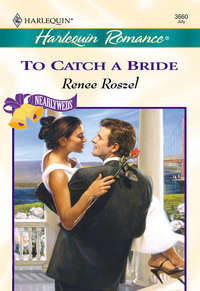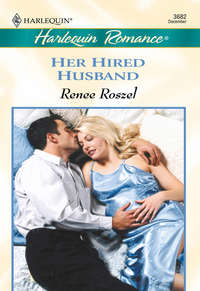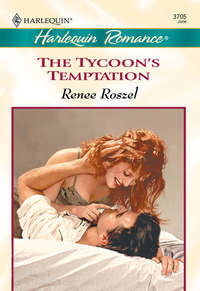
Полная версия
Surrender To A Playboy
Before she grasped what was happening, he doused his razor under running water, replaced it on the glass shelf below the mirror and rinsed his face. He took a bottle of aftershave off the shelf, spattered it into his palm, rubbed his hands together and splashed the aromatic liquid on his cheeks and square jaw. She watched, transfixed, experiencing the kindling of an odd yearning deep inside her. For what? Certainly not this—this sexy—No! No! I didn’t mean sexy, I meant selfish! This selfish reptile.
He replaced the cap on the bottle and set it aside then snagged her gaze. “It’s all yours, Miss O’Mara.” She stood there motionless, torn between wanting to look deeply into those hypnotic eyes and scratching them out. “I’ll just slither quietly away,” he said, with the vaguest hint of a bow.
After he left, Mary didn’t know how long she stood there, stock-still, trying to gather her fragmented thoughts. The bracing, woodsy scent of his aftershave lingered, turning her malfunctioning mind to slush.
After what seemed like an eternity she found herself able to move, and leaned heavily against the doorjamb. She ran her hands through her hair and grasped wads in her fists, furious for allowing herself to get—flustered. Yes, that was all it was. She’d been flustered. She hadn’t expected to see him, especially nearly naked. The situation had been embarrassing and—and flustering.
She inhaled several deep breaths for strength, reminding herself of what she knew better than her own name. The man was a human slug. “I hate you Bonner Wittering,” she whispered in a guttural snarl. “I will hate you until the end of time!”
CHAPTER THREE
TAGGART felt eligible for the Olympic Speed Eating race. One minute and twelve seconds had to be a record for consuming a stack of pancakes, a slab of ham, a tumbler of orange juice and a cup of coffee, which scalded the back of his throat.
The throat-scalding and the breakfast-bolting had been accomplished in a good cause. Otherwise, he might have found himself clasped in the embrace of the infatuated cook. Though aggravated and losing patience, Taggart was determined to remain sympathetic to Pauline’s brazen overcompensations for her feelings of inadequacy.
He’d managed to break free of her panting attentions for a temper-cooling stroll through the evergreen forest behind Miz Witty’s home, a shady cloister of low-growing pinyon pine, juniper, oak and towering ponderosas.
His hike over the rocky, forested landscape took him constantly upward. With every step he managed to rid himself of a little pent-up tension. He spotted a porcupine, a red fox and a mother deer with her fawn before emerging from the chill of the wood into a sun-drenched meadow. A clear, shallow brook meandered across the clearing, gurgling and sparkling in the sunshine for a dozen yards before tumbling back into the forest.
Beyond the meadow, past a steep chasm, the landscape was forbidding, yet stunningly beautiful, the earth, fractured and jagged. The timbered mountainside rising above the canyon was strewn with abandoned mining structures, no doubt part of the Wittering silver mining heritage. From what Bonn had told him over the years, savvy investing by several generations of Witterings, had multiplied the family’s wealth a hundredfold, allowing Bonn the existence of leisure and excess he lived.
That thought brought Taggart harshly back to the present and the reason he was here. Spotting an outcropping of rock among a stand of tall ferns at the edge of the wood, he leapt across the shallow brook, walked to the boulder and sat down.
He scanned the clearing, awash with midmorning sunshine. Masses of flowers bobbed in the stony field, giving a delicate blue-violet cast to patches of ground. Along the bubbling stream, dense colonies of taller, pale pink flowers held court.
He inhaled crisp, clean air, experiencing a sense of peace in the vast quiet. He couldn’t imagine why Bonn avoided his hometown with such a vengeance. Of course, Boston had a great deal to offer in convenience and comfort as well as historical significance, but this untouched wilderness held a grandeur far superior to mere convenience and creature comfort. Plus, its historical significance went back not merely a few hundred years, but eons.
He scanned the unbounded, cloudless sky. In this lofty realm a man could easily feel like Zeus himself, his thunderbolts cast aside, unnecessary amid such serenity. Truly, this sanctuary in the sky seemed too idyllic for mere mortals. He had the strangest sensation he’d been given a gift, just being allowed entry.
For the first time since arriving in Wittering, he didn’t feel resentful. How many times in his life had he truly felt serene? Certainly never in his high-powered, litigious career. He sat very still for a long time, drinking in the quiet, becoming one with the solitude. He felt like a man who had been lost in a desert, dying of thirst, then stumbling into an oasis awash with cool, life-giving water. The single difference between Taggart and that tragic wayfarer was that Taggart hadn’t been aware of the depth and breadth of the parched void inside him.
The realization was both shocking and compelling, sending his conflicting emotions into a bitter fight for supremacy. He told himself his life was exciting, filled with challenges. He had power, respect, money—was a big fish in a big pond. So, why then did he find being in this quiet spot on a remote mountain so significant, so potent, it made him doubt everything he was?
It’s the prehistoric cave dweller in you talking, his logical side insisted. Sure, it was tempting, this idea of getting away from everything. But it was a pipe dream. A man had to survive in the real world, make a living. “Hell,” he muttered, “Getting away from the rat race is what vacations are for.” He wasn’t sure he appreciated his term “rat race” but, since he’d been the one to think it, he let it pass without examination. Nobody’s job was perfect. Cave dwellers had to risk life and limb just to eat.
As careers went, his was as vital as it was profitable. His quandary, this unexpected emotional quagmire, was simple to explain. He was sleep-deprived, and a little disoriented—thrust into the position of suddenly being so loved, so loathed and so lusted after, all in one day. That could be hard on any man’s psyche.
He heard rustling and turned expecting to find another mother deer with her baby, or a fox, maybe an elk. Instead, he was astonished to see a being far more extraordinary, exotic and welcome, no matter how unwelcoming her reaction might be when she noticed him.
Her back to him, she walked along the edge of the brook as it took a turn into the sunny meadow. Spilling over the crook of her arm, an array of willowy, blue flower clusters bobbed with her every step. She knelt to pick a handful of the tall, pink flowers at the stream’s edge. Her dark hair fluttered and cavorted in the breeze, taunting him with come-ons he knew to be lies.
She rose, the move as graceful as any prima ballerina. Wearing hiking boots, jeans and a clingy, white turtleneck, she walked on. In full, bright sunlight, she paused before a bush, a riot of contrast with light green leaves and bright red berries. Using garden shears she snipped off several branches and added them to her bouquet.
Some of the flowers she carried were identical to those in the vase in his room. He’d seen several others he’d recognized in the plantings around the house. It hadn’t occurred to him that anyone would hike up a mountainside to gather wild-flowers, simply to decorate a home.
What an urban creature he’d become. Or was it more likely his status as a widower? Before Annalisa’s death, she had insisted on having fresh flowers in the house, year-round. They’d come from a Boston florist, not a mountain meadow, but those bouquets had been one of the subtle feminine touches in life he’d lost with his wife’s death. He’d stuffed the memories into a dark corner of his mind as he’d thrown himself into his law practice, his way of dealing with his grief. He experienced a melancholy jab at that realization. He didn’t want to forget, yet remembering held its own kind of pain.
Mary O’Mara seemed to be having trouble juggling her swelling bouquet and snipping the berry laden branches at the same time. As he watched, she dropped her gardening shears. He decided to quit feeling sorry for himself and be useful. He planned to offer her help, no matter how much she loathed him. He stood, recalling this morning when she’d barged into the bathroom, obviously not expecting to find him there.
She’d been horrified, aghast, dumbfounded—however he cared to label it, she had been far from happy. Even in her abhorrence, she’d been a stirring sight, her hair in charming disarray, her cheeks bright pink with shock and embarrassment. Her smoke-gray eyes dazzling, even glittering with antipathy.
She had such a troubling, gut-level effect on him, the sight of her standing there had been hard to deal with. It had taken every ounce of control not to slice off his nose. He’d known this trip would be two difficult weeks, but he hadn’t counted on the likes of Mary O’Mara, making his sticky situation one hell of a lot stickier.
He loved Annalisa and always would. This surprising attraction to Mary was hard to understand. He didn’t want to feel stirrings for another woman. When his wife died, he’d contented himself with the fact that he’d had his great love, been luckier than most men. Then Mary walked into his life. The beauty of the experience had been pure, blinding and profound. Her forced smile and white-hot hatred hadn’t dimmed or sullied its significance. He didn’t understand it, was bewildered by it, and tried to put it out of his mind.
He had enough to contend with right now. First, he wasn’t Bonn Wittering. And second, even if he were open to love, he couldn’t tell Mary the truth about who he was. She would be furious with the deceit and refuse to go along with lying to Miz Witty. He had no doubt that she would immediately inform her employer, and in the process break the elderly woman’s heart. In Mary’s position, he would probably do the same thing.
This troubling, uninvited attraction he felt for Miz Witty’s caregiver had to be ignored, killed. The deception had begun and must proceed as planned. He headed down the slope toward the brook, hiking up the sleeves of his beige v-neck shirt. Getting into character as the carefree Bonner Wittering, he called, “Need any help?”
Her body jerked at the sound of his voice, as though she’d been stung by a wasp. He heard her startled gasp. She spun around. Her eyes wide, she scanned the distance, quickly zeroing in on him. “You!” She closed her eyes for a split second, as though gathering her poise, then glared. “You scared the life out of me! What are you doing skulking around here?”
His hiking boots were waterproof so he waded through the shallow brook to where she stood. “I was looking around.” Bonn had undoubtedly seen all this as a child, so he added, “You know—for old times’ sake?” He indicated her burden. “Why don’t I hold those while you cut?”
She looked down at her bouquet and frowned, as though the idea of Bonn Wittering touching the flowers would contaminate them to the point where they’d wither and turn to dust. Her obvious disinclination to have him pollute her bouquet annoyed him, but he hid his feelings and knelt to retrieve her shears. “Or I could do the cutting. Just tell me what you want.”
She sucked in a quick breath, then exhaled as quickly. “Okay, I’d appreciate it very much if you’d go to Hades.”
He grunted a cynical chuckle. He’d laid himself wide open for that one. “Yeah, well—besides that.”
Her glance shifted to the shears he held, then to her armload of flowers. After a brief pause, she said, “I think I have enough.” She held out her hand. “Give me the shears. I need to get back to the house.”
He noticed her focus was on his neck, not his face. “No problem, Miss O’Mara.” He stuffed the gardening shears in the front, right pocket of his jeans. “I’m on my way back, and you’ve got enough to carry.”
Her glance flicked to his eyes. He could tell she was dismayed that he’d deposited the shears where she couldn’t get at them—unless she dived into his pants. He knew she’d rather be swallowed whole by a bear.
“Shall we go?” He took her arm.
She yanked away from his touch. “You have got to be kidding!”
He wasn’t surprised by her rejection and tried to tell himself he didn’t care. “Look, even a neglectful grandson can be a gentleman,” he said.
“Well, be one someplace else. If you’ll recall, Mr. Wittering, I told you to stay away from me.”
“If you’ll recall, Miss O’Mara,” he countered, “I don’t always do what I’m told.”
That remark got him a fiery glare. “You would brag about it!” She turned her back and stomped downhill toward the shady wood.
Taggart could tell she was determined to put distance between them. You can try to get away, he told her silently. But unless you break into a full run, you’re out of luck. He was quite a bit taller than she, his legs longer, making his stride impossible for her to outdistance as long as they were both walking. All through the forest, the ground was covered with pine needles and leaves, camouflaging potential hazards on the rock-strewn, uneven terrain. Running with her arms loaded down would be foolish.
He caught up to her in four easy strides. “What’s that perfume you have on? It smells like vanilla.” Actually he’d smelled it long before she arrived, but it was the only thing he could come up with at the moment besides the nagging question he hated wanting to ask. The one that went something like, May I kiss you to see if it’s as good as I think it would be?
“Ponderosa pine,” she said, her attention straight ahead. At least “Ponderosa Pine” is what he thought she said, since she’d spoken through thinned lips and gritted teeth.
“Pardon?” he asked, keeping his tone conversational.
“Sunshine makes their bark smell like vanilla.”
“Oh.” He watched her stern profile. “That’s interesting.”
She swerved around a lacy thicket of tall ferns. A winglike frond brushed one of the berry-laden branches off her bouquet. Either she didn’t notice or she didn’t plan to slow down enough to retrieve it. Taggart rescued it from the wagging frond. When he caught up with her he asked, “Are these berries poisonous?”
She glanced his way for a flash, then returned her attention to the maze of trees ahead. “Eat one and find out.”
He couldn’t repress a grin. “Okay.”
He plucked off one of the berries and, after a brief delay, popped it in his mouth, trusting her hatred for him stopped short of homicide. He chewed, startled to find the fruit tasted like lemonade. “It’s not bad.”
She didn’t respond.
“How long have I got before I keel over?”
She shifted to glower at him. “Sadly, they’re perfectly harmless.”
He found himself grinning again. “What a shame.”
He lay the branch on top of her bouquet, and she gathered it into her arms along with the others. “I’d have thought you’d know that.” She peered at him. “Having been born here.”
He experienced a prick of apprehension but covered with a nonchalant shrug. “It’s refreshing to discover you can be wrong.”
She stared hard at him for a couple of steps, but the terrain wasn’t the soft and gentle kind you could take your attention away from for too long without regretting it, so she snapped her focus forward.
“Remember, I was shipped off to boarding school at nine. A boy can forget a lot of details about a hometown he’s hardly visited in over a quarter of a century.”
“I’m sure!” she said. “Like the detail of his grandmother!”
He gave her a quick look, then returned his attention to the twisty trail. The mention of Miz Witty brought a question to his mind. “How is she today?”
“She’s fine,” Mary said, her tone clipped. “This is her bouquet. She’s eating breakfast now. As soon as she’s through she’ll want to bathe. Then we’ll do a little physical therapy for her leg.” She glanced his way, her expression defiant. “She’ll be ready for company about eleven.”
He absorbed that news. “Then tell her I’ll see her at eleven.”
Mary’s expression didn’t ease. He sensed rather than saw her relief.
He shook his head, marveling that she could so completely and utterly distrust him. “What did you think I’d do, visit her one evening then ignore her?”
“I wouldn’t put anything past you,” she said.
He looked ahead, glimpsing the house through the trees, which brought on another thought. “Please inform Pauline that I’ll be eating lunch with Miz Witty.”
Mary peered at him, clearly dubious. Of course, she didn’t know his problem with the oversexed cook. Even if he hadn’t enjoyed Miz Witty’s company, he would choose eating lunch with a pack of ravenous wolves over Pauline-the-winker.
“I usually eat lunch with Miz Witty,” she said after a pause.
He was surprised, but didn’t know why he should be. “I’ll be joining you, then,” he said, aware of the crimp that news put in her day.
She remained grimly mute as they hiked to the edge of the forest. The redwood steps leading to the back porch loomed ahead of them. Beyond that was the kitchen. Taggart had no intention of making that trip.
“Here.” He retrieved the garden shears from his pocket and held them out. “I think I’ll walk into town.”
She halted, glanced at him. Her attention trailed from his face to his hand and the shears he lifted toward her. Without comment, she took them and resumed her trek toward the back door.
“Me, too,” he said.
She stopped, turned, looking suspicious. “What?” He crossed his arms over his chest, taunting, “I enjoyed our stroll, too.” That would get a rise out of her.
Her eyes flashed and her cheeks reddened. “Mr. Wittering, we did not stroll, and whatever it was, I did not enjoy it.” Snapping her shoulders around she broke into a run across the lawn. He felt sure she’d longed to do that from the beginning.
“I’ll see you at lunch,” he called, his reward a half-step falter in her stride and a definite stiffening of her spine.
As he watched her flee, he pondered his behavior. He was surprised at himself for teasing her. It wasn’t like him. What obscure, insubordinate part of him was responsible for this aberrant behavior? Why was he teasing this woman—a woman who hated the man she believed him to be? What contrary force inside him was not only disregarding his own counsel to kill the attraction, but purposefully drawing out her passion in the form of hostility, simply to glimpse it?
He pivoted away to go around the house. Shaking his head at himself, he muttered, “What’s wrong with you, Lancaster?”
Mary feared her lips would be permanently frozen in the strained smile she’d been compelled to wear during lunch with Miz Witty and Bonn Wittering. The only good thing about it had been her employer’s delight. She looked ten years younger and happier than Mary had ever seen her. Which only made her desire to kick Bonn Wittering in the shins harder to resist. He’d been so careless of this wonderful woman’s feelings for so long.
And his shins were so near! He sat directly across from her at the oak card table. It would be a crime not to kick him, just once. Really hard.
“I’ll help clear the dishes.” A voice intruded on her spiteful fantasy. A male voice. She glanced across the table, situated in front of Miz Witty’s hearth. Mary had spent the last, endless hour confined there with Bonn and her boss, conversing over a meal of tuna salad, stuffed in a tomato, marinated asparagus tips, orange slices and hot tea. Mary had a feeling Bonn was accustomed to eating more for his midday meal, and felt a gush of satisfaction at that. Let him be hungry!
“Mary?” The man causing her so much stress stood up, aiming a painfully exhilarating smile her way.
She wondered if his face muscles were as tired from their farce as hers. “Yes?” she asked, continuing to pretend she didn’t think he was the most self-centered man on earth.
“I said I’d help clear the table.”
She nodded and placed her napkin beside her plate. “How—nice.” She stood and moved to Miz Witty’s side, affectionately squeezing her employer’s hand. “Is there anything I can get you?”
Miz Witty beamed, her normally pale cheeks rosier than Mary had seen them in their two-and-a-half years together, her eyes bright with contentment. “No dear. I’m going to read until tea time.” She removed her hand from Mary’s and patted the younger woman’s face. “Tell Cook the lunch was delicious, as usual.” She lowered her hands to the wheels of her wheelchair and began to back away from the table.
“May I help?”
Startled to hear the offer, Mary glanced at Bonn. He was certainly laying on the Sir Galahad act pretty thick! Why should she be surprised? Bonn Wittering had a lot to lose if his grandmother cut him out of her will. She was a wealthy woman, and Bonn was her only relative. If Mary’s suspicions were true, Bonn had run through his own inheritance and couldn’t afford to alienate his grandmother. Mary had no doubt that was the real reason he’d finally come back to Wittering.
Miz Witty beamed at her grandson. “That’s a very sweet offer, dear. If you wouldn’t mind, I’d like to sit by the window. It’s such a beautiful day.” She pointed to her bedside table. “My book is over there.”
Mary began to clear the table, working to ignore the man. She pursed her lips, gratified to know she could actually change her expression to one more suited to her real mood.
As she placed the last of the china and silverware on the serving tray, the man responsible for her grimness materialized beside her. “I’ll take that.”
Kick his shins now! she roared inwardly. But she knew she couldn’t, not even if Miz Witty weren’t in the room. Regretful, she stepped away and indicated the tray, piled with dirty dishes. Since her back was to Miz Witty she didn’t smile. For show, she added a lighthearted lilt to her voice. “Why, thank you so much, Bonn.” She gave him a look that shouted her desire to hurt him physically. The slight narrowing of his eyes told her he’d received her message.
He picked up the tray and walked toward the open bedroom door. Mary turned toward Miz Witty who watched them, smiling. The older woman waved her away. “Why don’t you and Bonn go for a walk, have a nice long visit. I’m sure he’d enjoy the company of a lovely young woman.”
Mary managed a grin, nodded at her employer but inwardly grumbled, Over my dead body! “What a—lovely idea.” Exiting the room, Mary rolled her eyes, grateful Bonn had already left and couldn’t have heard the detestable suggestion.
When Mary reached the bottom of the staircase, Bonn appeared so suddenly, they almost collided. He no longer held the tray. Taking a step back, she put distance between them. “You made quick work of leaving the dishes,” she said.
He didn’t smile. She couldn’t tell if the serious expression was annoyance at her for moving away—some kind of playboy-ego thing—or if he was as weary as she, forced to sustain a fake smile from eleven in the morning until one in the afternoon. She didn’t know why he should be weary of it. Womanizers surely had well-exercised smile muscles.
“Was I supposed to wash the dishes?” he asked.
She took another step back and found herself against the wall. She flattened herself there. “Uh—no. Pauline does the dishes.”
He nodded, eyeing her quietly. Nervous flutterings pricked at her chest. She swallowed. Staring into warm, earth-brown eyes that had an uncanny ability to seem so—so earnest, was confusing and disorienting. She tried to look away but the hypnotic effect of his gaze short-circuited her ability, highly disconcerting.
She wasn’t accustomed to feeling this strange, agitated dichotomy about people. About men. But this man confused, frustrated and disturbed her. She disliked him with all her heart, but the restless disquiet that tightened her chest wasn’t dislike. She wished it were. It was an uneasiness without a name, and she didn’t like it.









